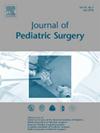A New Era in Medical Information: ChatGPT Outperforms Medical Information Provided by Online Information Sheets About Congenital Malformations
IF 2.4
2区 医学
Q1 PEDIATRICS
引用次数: 0
Abstract
Background
ChatGPT has demonstrated notable capabilities and has gained popularity in various medical tasks, including patient education. This study evaluates the content and readability of ChatGPT's responses to parents' questions about congenital anomalies.
Methods
Information on four congenital anomalies (congenital diaphragmatic hernia, esophageal atresia and tracheoesophageal fistula, anorectal malformation, and gastroschisis) was assessed. Seven questions frequently asked by parents were posed for each anomaly, and responses generated by GPT-4 were compared to online information sheets from three top pediatric medical centers. Two senior pediatric surgeons, blinded to the source, evaluated the answers based on accuracy, comprehensiveness, and conciseness. Reading time and readability of the answers were also assessed.
Results
ChatGPT answered all 28 questions, while online information sheets varied in completeness. ChatGPT's responses were rated significantly higher regarding full accuracy, comprehensiveness, and conciseness compared to the online information sheets (p < 0.00001, <0.00001, 0.0002, respectively). Despite having longer reading times and more challenging to read, ChatGPT's responses were more precise and detailed.
Conclusions
ChatGPT outperforms online information sheets in providing accurate, comprehensive, and concise answers about congenital anomalies. This positions ChatGPT as a beneficial supplementary resource in pediatric healthcare. Future research should explore real-world applications and usability among parents.
Level of Evidence
Level III.
医疗信息的新时代:ChatGPT 优于有关先天性畸形的在线信息表所提供的医疗信息。
背景介绍ChatGPT 在包括患者教育在内的各种医疗任务中表现出了显著的能力并得到了普及。本研究评估了 ChatGPT 回答家长有关先天性畸形问题的内容和可读性:评估了四种先天性畸形(先天性膈疝、食道闭锁和气管食道瘘、肛门直肠畸形和胃裂)的相关信息。针对每种畸形提出了家长常问的七个问题,并将 GPT-4 生成的回答与三家顶级儿科医疗中心的在线信息表进行了比较。两位资深小儿外科医生在对信息来源保密的情况下,根据准确性、全面性和简洁性对答案进行了评估。此外,还对答案的阅读时间和可读性进行了评估:结果:ChatGPT 回答了所有 28 个问题,而在线信息表的完整性则参差不齐。与在线信息表相比,ChatGPT 的回答在完全准确性、全面性和简洁性方面的评分明显更高(p 结论:ChatGPT 的回答在完全准确性、全面性和简洁性方面的评分明显高于在线信息表:ChatGPT 在提供有关先天性畸形的准确、全面和简洁回答方面优于在线信息表。这使 ChatGPT 成为儿科医疗保健的有益补充资源。未来的研究应探索在现实世界中的应用以及在家长中的可用性:证据等级:III 级。
本文章由计算机程序翻译,如有差异,请以英文原文为准。
求助全文
约1分钟内获得全文
求助全文
来源期刊
CiteScore
1.10
自引率
12.50%
发文量
569
审稿时长
38 days
期刊介绍:
The journal presents original contributions as well as a complete international abstracts section and other special departments to provide the most current source of information and references in pediatric surgery. The journal is based on the need to improve the surgical care of infants and children, not only through advances in physiology, pathology and surgical techniques, but also by attention to the unique emotional and physical needs of the young patient.

 求助内容:
求助内容: 应助结果提醒方式:
应助结果提醒方式:


